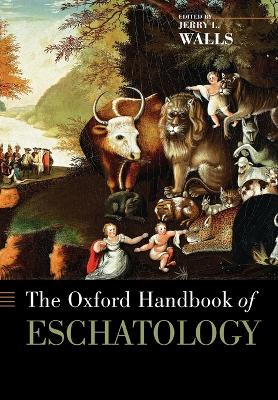Oxford Handbooks
1 total work
Eschatology is the branch of theology that deals with the final consummation of all things. Covering such subject matter as death, judgment, and the life to come, the discipline of eschatology must grapple with some of our greatest hopes, fears, anxieties and expectations. The issues involved are uniquely complicated because they are both intensely personal and of universal significance. To ponder the "last things" is to consider not only the final fate of all
things, but to question daringly how one's individual journey through life relates to God's grander scheme. Over the course of history, many prominent thinkers have elevated eschatology into one of the most fascinating and controversial dimensions of religious belief. The Oxford Handbook of Eschatology
provides an invaluable critical survey of this diverse body of thought and practice from a variety of perspectives: biblical, historical, theological, philosophical, and cultural.
Through centuries of Christian thought-from the early Church fathers through the Middle Ages and the Reformation-eschatological issues were of the utmost importance. In other religions, too, similar concerns were central to the shaping of the beliefs, practices, and identities of believers. After the Enlightenment, though, many religious thinkers began to downplay the importance of eschatology which, in light of rationalism, came to be seen as something of an embarrassment. The twentieth
century, however, saw the rise of several phenomena that restored eschatology to the forefront of religious thought.
From the rapid expansion of fundamentalist forms of Christianity, with their focus on the end times; to the proliferation of apocalyptic new religious movements; to the recent (and very public) debates about suicide, euthanasia, martyrdom, and paradise in Islam, interest in eschatology is once again dramatically on the rise. This expansive handbook offers thirty-nine chapters exploring the diverse terrain of eschatology's past, present, and future-providing informative insights on heaven, hell,
and everything in between. This volume will prove to be the primary resource for students, scholars, and others interested in questions of our ultimate existence.
things, but to question daringly how one's individual journey through life relates to God's grander scheme. Over the course of history, many prominent thinkers have elevated eschatology into one of the most fascinating and controversial dimensions of religious belief. The Oxford Handbook of Eschatology
provides an invaluable critical survey of this diverse body of thought and practice from a variety of perspectives: biblical, historical, theological, philosophical, and cultural.
Through centuries of Christian thought-from the early Church fathers through the Middle Ages and the Reformation-eschatological issues were of the utmost importance. In other religions, too, similar concerns were central to the shaping of the beliefs, practices, and identities of believers. After the Enlightenment, though, many religious thinkers began to downplay the importance of eschatology which, in light of rationalism, came to be seen as something of an embarrassment. The twentieth
century, however, saw the rise of several phenomena that restored eschatology to the forefront of religious thought.
From the rapid expansion of fundamentalist forms of Christianity, with their focus on the end times; to the proliferation of apocalyptic new religious movements; to the recent (and very public) debates about suicide, euthanasia, martyrdom, and paradise in Islam, interest in eschatology is once again dramatically on the rise. This expansive handbook offers thirty-nine chapters exploring the diverse terrain of eschatology's past, present, and future-providing informative insights on heaven, hell,
and everything in between. This volume will prove to be the primary resource for students, scholars, and others interested in questions of our ultimate existence.
